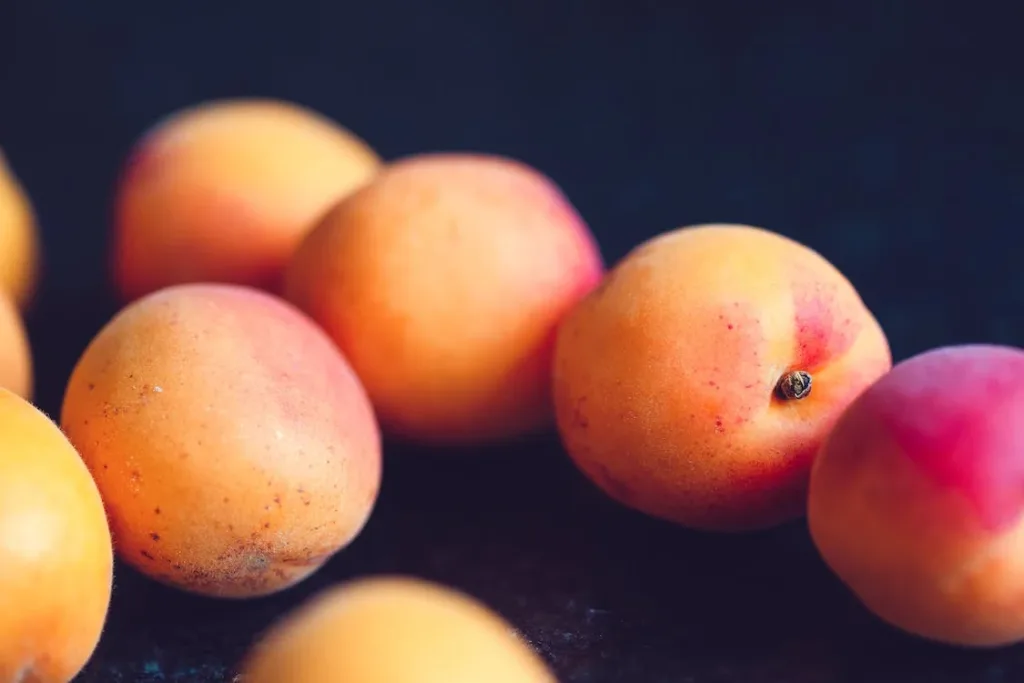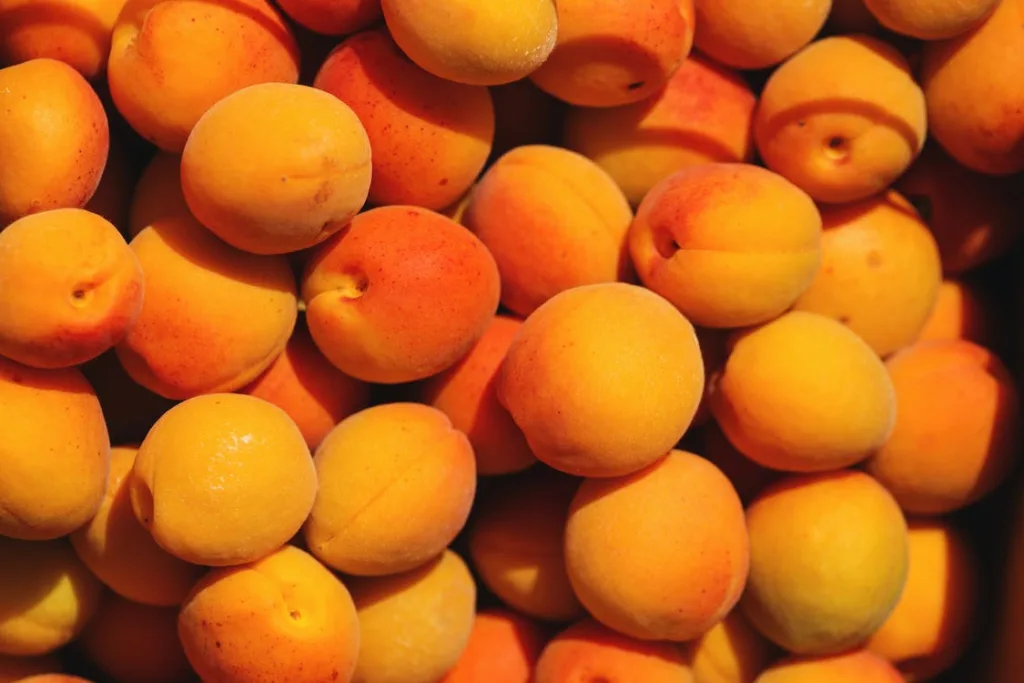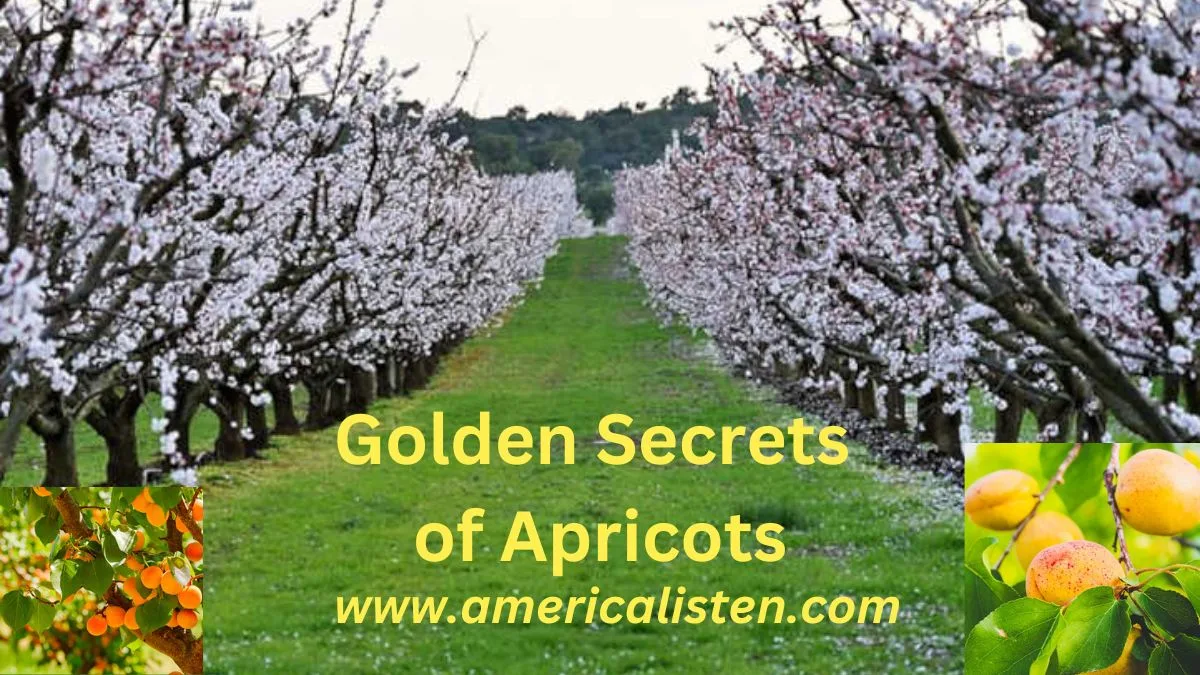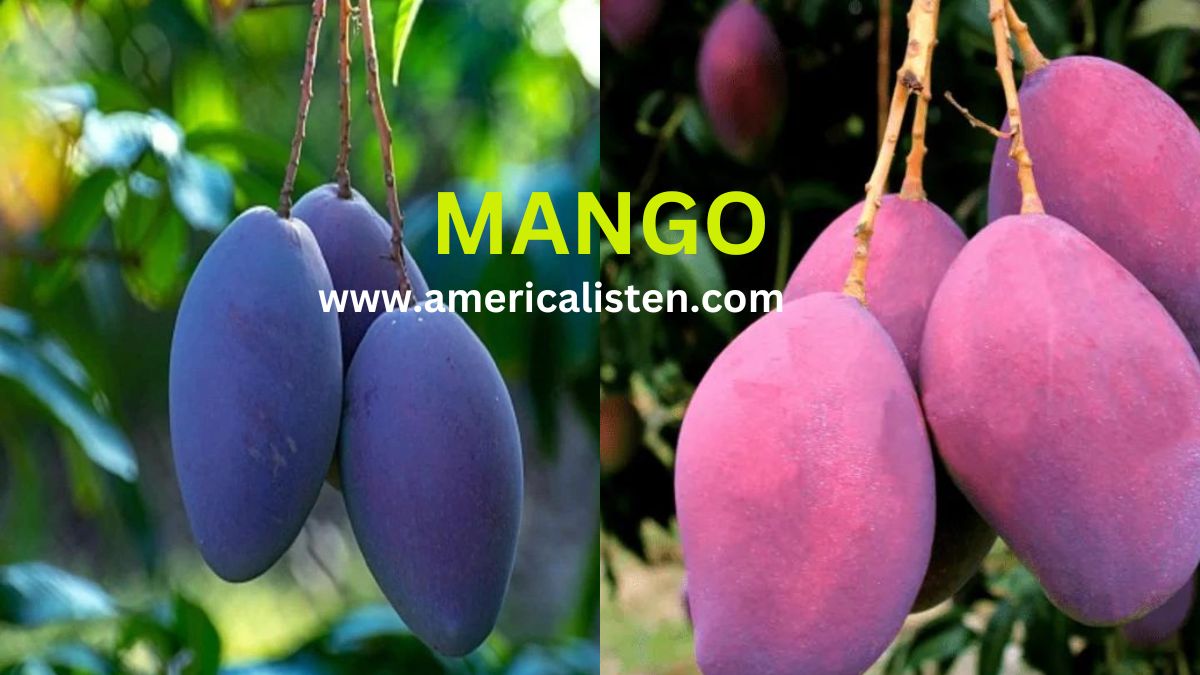Apricots, with their golden hue and sweet, juicy flesh, are a delightful fruit cherished by many around the world. These stone fruits are not only a treat for the taste buds but also offer a host of health benefits. Apricots are known for their rich vitamin content, including vitamin A, vitamin C, and beta-carotene, which promote good eye health and boost the immune system.
1.Certified Organic Apricots: Ladakh’s Pride
2.A Healthy Choice: Nutritional Value of Apricots
3.Apricots Across India: Names and Seasons
But apricots aren’t just about nutrition; they have a rich history and global significance. They were originally domesticated in China and have since spread to every continent except Antarctica. Apricots are celebrated in various cultures, with Armenia even designating them as the national fruit.
From Ladakh in India to Turkey and beyond, apricot cultivation has created diverse varieties, each with its unique flavor profile. The Blenheim apricot is renowned for its exceptional taste and often considered the world’s most flavorful apricot.

Apricots
Apricots are versatile in the kitchen and can be enjoyed fresh, dried, or used in various culinary creations, from jams and desserts to savory dishes. They’re even associated with relaxation and make for a soothing bedtime snack.
The World of Apricots: A Golden Bounty
Apricots, often hailed as nature’s golden delight, hold a special place in the world of fruits. Beyond their delightful flavor, apricots offer a wealth of health benefits and have a rich cultural significance. Let’s dive deeper into the apricot universe, exploring their diversity and the regions where they flourish.
Know More About Apricots Click Me
Blenheim Apricots: The Epitome of Flavor
Blenheim apricots have long been celebrated for their unparalleled taste and quality. These medium to large-sized fruits exhibit a vibrant yellow hue with a blush of orange on their cheeks. Their firm, juicy, pale orange flesh is a testament to their delicious flavor.
Turkey: The Global Apricot Leader
Turkey proudly holds the title of the world’s leading apricot producer, closely followed by Iran and Uzbekistan. The apricot orchards of Turkey are renowned for their exceptional yield and quality.
Raktsey Karpo: Ladakh’s Sweet Pride
Meet the Raktsey Karpo, Ladakh’s pride and joy, celebrated as one of the sweetest apricot varieties globally. This delightful fruit is colloquially known as ‘lal khubani’ or ‘jardalu.’ Its vibrant reddish-orange color and sweet yet slightly tangy taste, along with its velvety skin and smooth flesh, make it truly special.
Tilton: The Delectable Choice
Among the diverse apricot cultivars, ‘Tilton’ stands out as one of the most delectable choices. It boasts a unique sweet and tart flavor, accompanied by a tender, juicy texture. ‘Tilton’ is the top pick for canning, drying, freezing, or simply enjoying as a wholesome snack.
Apricot Farming in India: Ladakh Takes the Lead
In the realm of apricot farming in India, Ladakh emerges as the undisputed leader, producing an impressive 15,789 tonnes of these luscious fruits. Following Ladakh, Himachal Pradesh and Jammu & Kashmir are the nation’s prime apricot-producing states. Uttar Pradesh and parts of the North-Eastern hilly regions also contribute to apricot cultivation.
The Cost of Apricots: A Reflection of Their Challenge
Apricots tend to command higher prices compared to other domestic fruits, primarily due to the challenges involved in their cultivation. Apricot trees are notoriously finicky and exhibit erratic production patterns, making them more expensive to grow and harvest.
Apricots in Ladakh: ‘Lal Khubani’
Known as ‘lal khubani’ or ‘jardalu,’ apricots from Ladakh are a common sight and a cherished fruit in Northern India’s Ladakh province. Their vibrant reddish-orange appearance, sweet and tangy flavor, and velvety skin and flesh make them a standout fruit.
1.Certified Organic Apricots: Ladakh’s Pride
Ladakh’s certified organic apricots are a cut above the rest. These apricots, celebrated as the best and sweetest in the country, thrive in the cold, arid, and picturesque landscapes of Ladakh. Their taste is nothing short of a delight.
Turkish Apricots: Culinary Stars
When it comes to culinary applications, Turkish apricots steal the spotlight. Their widespread availability and juicy, sweet nature make them the go-to choice for baking and cooking, enhancing the flavor of various dishes.
2.A Healthy Choice: Nutritional Value of Apricots
For a healthy diet, apricots are a recommended choice. A portion of 30 grams, equivalent to 3 or 4 apricots, is the suggested serving size. Dried apricots retain the same nutritional value as fresh ones and are even denser in antioxidants, minerals, and fiber by weight.
3.Apricots Across India: Names and Seasons
In India, apricots go by various names, including ‘Jardalu,’ ‘Khubani,’ and ‘Khumani.’ This delicate fruit is highly perishable once harvested, necessitating quick consumption or preservation.
Seasonal Splendor: Apricots’ Arrival
Apricot fruits typically mature during the first week of May to June. While they are associated with the monsoon season, their appeal transcends seasonal boundaries.
California: A Hub of Apricot Production
California reigns as the top apricot-producing state in the United States, with apricot orchards transitioning from the San Francisco Bay area to the San Joaquin Valley in the post-World War II era.
Symbol of Identity: Armenia’s Apricot
Armenia proudly claims the apricot as its national fruit, with vast apricot orchards gracing the Ararat plain. Apricots are often featured on Armenian souvenirs, symbolizing the nation’s heritage. In Chinese culture, apricots are associated with education and medicine.
Fruit Powerhouses: Leading Fruit-Producing Nations
When it comes to fruit production, China leads the way, followed by India, Brazil, and Turkey. These countries boast impressive fruit production figures, showcasing their agricultural prowess.
The Origin Story: Apricots’ Journey
While apricots were originally domesticated in China, their cultivation has now spread to every continent except Antarctica. Archaeological evidence reveals that apricots were consumed in ancient Armenia. The fruit was introduced to the New World by Spanish missionaries in California during the early 18th century.
Turkey: The Dried Apricot Leader
In the realm of dried apricot exports, Turkey holds the crown. In 2022, Turkey emerged as the undisputed leader, with a staggering export value exceeding 393 million U.S. dollars.
India’s Fruit Bounty
India offers a cornucopia of fruits, with Indian Gooseberry, Jackfruit, Banana, Pomegranate, Mango, Watermelon, Apple, Peaches, Pears, and Papaya ranking among the top 10 fruit choices. These fruits are packed with essential nutrients and antioxidants that promote good health.
Kashmir’s Premium Dried Apricots
Kashmir, India, boasts the production of premium dried apricots. These apricots are renowned for their exquisite taste, sweetness, and juiciness. They are often transformed into jams, juices, and high-quality dried snacks.
Apricot Varieties in Jammu and Kashmir
Jammu and Kashmir offer a plethora of apricot varieties, including Afghani, Raktsey-Karpo, Khantay, Koban, Kaisi, Halman, Nari, Nari Special, Safeda, and more. These distinct varieties cater to diverse preferences and culinary applications.
The Pinnacle of Fruit Luxury
Yubari King Melon, a Japanese luxury fruit, commands an astonishing price of nearly $200 per piece. Cultivated exclusively in Yubari, Hokkaido, these sweet melons are a status symbol and a testament to meticulous cultivation.
In this note, we’ll explore the wonderful world of apricots, from their global significance to their health benefits and culinary uses. So, let’s dive into the sweet and sunny world of apricots with curiosity and appetite!
Now, let’s delve into some common questions and answers about apricots to learn more about this golden fruit.
Q1: What is considered the most flavorful apricot in the world?
A1: The Blenheim apricot is widely regarded as the most flavorful and best-tasting apricot in production. It features medium to large size, a yellow skin with orange cheeks, firm and juicy pale orange flesh, and a delicious flavor.
Q2: Which country leads in apricot production globally?
A2: Turkey holds the top position as the largest apricot producer in the world, followed closely by Iran and Uzbekistan.
Q3: What is the sweetest apricot variety globally?
A3: The Raktsey Karpo, a variety found in Ladakh, India, is renowned as one of the sweetest apricot varieties worldwide.
Q4: What apricot variety is known for being the tastiest?
A4: The ‘Tilton’ apricot is celebrated for its exceptional taste, offering a unique blend of sweetness and tartness, along with a tender and juicy texture. It’s highly regarded for various culinary purposes.
Q5: Which region in India is famous for apricot production?
A5: Ladakh is the primary region in India known for its apricot cultivation, with the highest output, producing approximately 15,789 tonnes of apricots. Following Ladakh, Himachal Pradesh and Jammu & Kashmir are the top apricot-producing states.
Q6: What is the reason for the relatively high cost of apricots?
A6: Apricots are generally more expensive than other domestic fruits due to their challenging cultivation process and unpredictable production patterns, according to experts.
Q7: What names are apricots known by in India?
A7: Apricots go by various names in India, including Jardalu, Khubani, and Khumani, depending on the region where they are cultivated.
Q8: When do apricots typically mature in India?
A8: Apricots typically mature during the first week of May to June, making them a monsoon fruit but suitable for consumption throughout the year.

Apricots
Q9: Which state in the United States is the top apricot producer?
A9: California leads the United States in apricot production, although apricot cultivation shifted from the San Francisco Bay area to the San Joaquin Valley after World War II.
Q10: What is the national fruit of Armenia, and where is it predominantly grown?
A10: The apricot holds the prestigious title of the national fruit of Armenia, with most of its cultivation occurring in the Ararat plain.
Q11: Which countries are rich in fruit production?
A11: China leads the world in fruit production, followed by India, Brazil, and Turkey.
Q12: Where was the apricot originally domesticated?
A12: The apricot was initially domesticated in China and is now grown on every continent except Antarctica.
Q13: Which country is the leading exporter of dried apricots worldwide?
A13: Turkey is the leading exporter of dried apricots worldwide, with a significant export value exceeding 393 million U.S. dollars.
Q14: What are some other fruits highly available in India?
A14: Apart from apricots, the top 10 fruits commonly available in India include Indian Gooseberry, Jackfruit, Banana, Pomegranate, Mango, Watermelon, Apple, Peaches, Pears, and Papaya.
Q15: What are some notable facts about apricots?
A15: Some interesting facts about apricots include their membership in the rose family, the ability of one apricot tree to produce fruit for up to 25 years, and the availability of fresh U.S. apricots from mid-May to mid-August.
Q16: Which fruit is considered one of the most expensive in the world?
A16: The Yubari King melon, grown exclusively in Yubari, Hokkaido, Japan, is renowned as one of the most expensive fruits globally, fetching prices of almost $200 per piece.
Q17: Can apricots be beneficial for brain health?
A17: Yes, apricots contain vitamin B6, which supports serotonin production in the brain, potentially aiding in mood regulation.
Q18: Are apricots known to have potential liver benefits?
A18: Research suggests that apricots may help prevent liver damage due to their high antioxidant content, although further studies in humans are needed to confirm these benefits.
Q19: How can apricots benefit the skin?
A19: Apricots are excellent for the skin, as they contain vitamin C, which promotes skin clarity, suppleness, and elasticity. Their mild natural oil makes them suitable for even sensitive skin.
Q20: Can individuals with diabetes safely consume apricots?
A20: Yes, apricots can be a good choice for people with diabetes as they have a low glycemic index and are a good source of fiber, which can help regulate blood sugar levels.
Q21: Can apricots be combined with milk for consumption?
A21: Yes, apricots can be enjoyed with milk, creating a delicious and nutritious combination.
Q22: Do apricots contribute to improving blood flow?
A22: Yes, apricots contain iron, which can enhance blood flow and help prevent anemia, with copper aiding in iron absorption.
Q23: Is apricot juice recommended for feverish patients?
A23: Yes, apricot juice is often administered to feverish patients as it provides essential vitamins, minerals, calories, and hydration, while also assisting in detoxification.
Q24: What is the best time to consume dried apricots for maximum benefits?
A24: Dried apricots are best consumed early in the morning on an empty stomach. According to registered clinical nutritionist Nilofar Pendhari, they are rich in potassium and magnesium, known for their calming effects. Soaking dried apricots overnight can also help remove sulfites used for preservation.
Q25: Are there any new apricot varieties to explore?
A25: Yes, new apricot varieties labeled NZ Summer 2, 3, and 4 have been developed through plant food research in Central Otago, New Zealand. These varieties offer enhanced sweetness, juiciness, and a more intense apricot flavor, along with different maturation times.
You May Like:
Winter’s Bounty: A Nutritional Guide to Top-Notch Fruits for Cold-Weather Wellness


